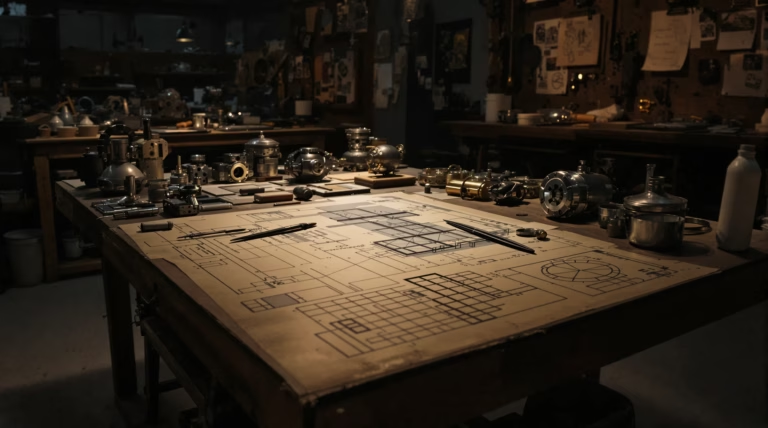What Does a Nuclear Engineer Do? Insights into the Profession
Discover the fascinating world of nuclear engineering, where science meets innovation to shape our energy future. From powering cities to advancing medical treatments, nuclear engineers play a vital role in developing safe and efficient atomic energy applications.
Understanding the Role of a Nuclear Engineer
Nuclear engineers stand at the forefront of atomic energy innovation, conducting research and development projects that focus on the controlled release and utilization of nuclear power. These specialists combine their expertise in physics, materials science, and engineering to tackle complex challenges in nuclear systems and technologies.
Their work environments span diverse settings, including power plants and research laboratories, where they design sophisticated equipment, develop operational protocols, and maintain stringent safety standards. This multidisciplinary approach ensures the responsible advancement of nuclear technology while prioritizing safety and environmental protection.
Key Responsibilities of Nuclear Engineers
- Designing and developing nuclear equipment including reactor cores and radiation shielding systems
- Managing plant operations and establishing safety procedures
- Conducting research to improve nuclear processes and efficiency
- Analyzing operational data and implementing performance enhancements
- Collaborating with regulatory agencies for safety compliance
- Working with interdisciplinary teams on innovative energy solutions
Career Path and Opportunities in Nuclear Engineering
The journey in nuclear engineering begins with a robust educational foundation in nuclear engineering or related fields. Entry-level positions typically involve supervised work on specific project components, with progression leading to senior roles or specialized research opportunities.
| Industry Sector | Career Opportunities |
|---|---|
| Healthcare | Medical imaging technology, radiation treatment development |
| National Defense | Nuclear propulsion systems, naval vessel engineering |
| Power Generation | Reactor design, plant operations, safety systems |
| Research Institutions | Advanced technology development, academic research |
Core Areas of Nuclear Engineering
Nuclear engineering encompasses multiple specialized domains that drive innovation in power generation, medical treatments, and industrial applications. The field has evolved significantly since its inception, progressing from experimental concepts to sophisticated Generation IV reactors with enhanced safety features and improved efficiency.
Design and Operation of Nuclear Reactors
Nuclear reactor design represents one of modern technology’s most complex engineering challenges. Engineers integrate thermal hydraulics, materials science, and nuclear physics to create systems supporting controlled fission reactions. Their expertise extends to implementing comprehensive protocols for:
- Daily operational management and monitoring
- Core parameter optimization
- System performance analysis
- Fuel management strategies
- Maintenance procedures
Research and Development in Nuclear Energy
Innovation in nuclear energy focuses on breakthrough technologies that could revolutionize power generation. Current research priorities include small modular reactors, fusion energy systems, and advanced radiation-resistant materials. This work involves collaboration between industry partners, government laboratories, and academic institutions, creating an ecosystem that drives progress in nuclear technology development.
Safety and Environmental Considerations
Safety and environmental considerations form the cornerstone of nuclear engineering, influencing every aspect of the profession. Nuclear engineers develop and implement comprehensive safety systems that incorporate multiple layers of protection, including redundant safety mechanisms, containment structures, and sophisticated monitoring systems to maintain operational integrity and prevent accidents.
- Multiple redundant safety mechanisms
- Advanced containment structures
- Real-time monitoring systems
- Radiation exposure prevention protocols
- Emergency response procedures
Implementing Nuclear Safety Protocols
Nuclear engineers serve as guardians of safety protocols throughout nuclear operations, implementing multi-layered defense-in-depth approaches. Their work encompasses rigorous risk assessments using probabilistic methods to identify and mitigate potential vulnerabilities.
- Development of emergency response procedures
- Establishment of radiation protection standards
- Creation of personnel training programs
- Regular safety drill coordination
- Systematic equipment inspections
- Continuous operational parameter monitoring
Managing Nuclear Waste and Environmental Impact
| Environmental Management Area | Engineering Solutions |
|---|---|
| Waste Containment | Specialized systems for different radioactive waste types |
| Environmental Protection | Continuous monitoring programs and ecological assessments |
| Thermal Impact | Advanced cooling systems for waterway protection |
| Air Quality | Filtration technologies for preventing radioactive releases |
| Long-term Planning | Predictive modeling for environmental interactions |
Skills and Education Required for Nuclear Engineers
Success in nuclear engineering requires mastery of complex scientific principles and continuous professional development. Engineers must maintain expertise in physics, mathematics, and engineering fundamentals while adapting to evolving industry standards and technologies.
Essential Skills for Success in Nuclear Engineering
- Advanced mathematical and physics knowledge
- Computer modeling and simulation expertise
- Problem-solving and analytical thinking
- Exceptional attention to detail
- Strong communication abilities
- Project management capabilities
- Ethical decision-making skills
- Adaptability to changing regulations
The profession demands a minimum of a bachelor’s degree in nuclear engineering or related fields, with many practitioners pursuing advanced degrees for specialization in areas such as reactor design, radiation protection, or nuclear materials. This combination of formal education and practical experience enables nuclear engineers to address complex technological challenges while maintaining the highest safety standards.
Educational Pathways to Becoming a Nuclear Engineer
The foundation of a nuclear engineering career starts with comprehensive STEM education. A bachelor’s degree in nuclear engineering or related fields (mechanical, electrical, or chemical engineering with nuclear specialization) serves as the primary entry point into the profession.
- Core undergraduate subjects:
- Nuclear physics
- Thermodynamics
- Reactor theory
- Radiation protection
- Materials science
| Educational Path | Career Outcomes |
|---|---|
| Bachelor’s Degree | Entry-level positions in power plants and research facilities |
| Master’s Degree | Specialized roles in reactor design, nuclear security, medical applications |
| Doctoral Studies | Research leadership positions, academic careers |
| Associate Degree + Transfer | Cost-effective pathway to bachelor’s completion |
Professional development extends beyond formal education through practical experience gained via internships and cooperative education at national laboratories and power plants. While not universally mandatory, obtaining Professional Engineer (PE) certification demonstrates exceptional competence and ethical commitment. The dynamic nature of nuclear engineering necessitates ongoing education through specialized workshops, certifications, and advanced coursework to maintain expertise in emerging technologies and regulatory requirements.







